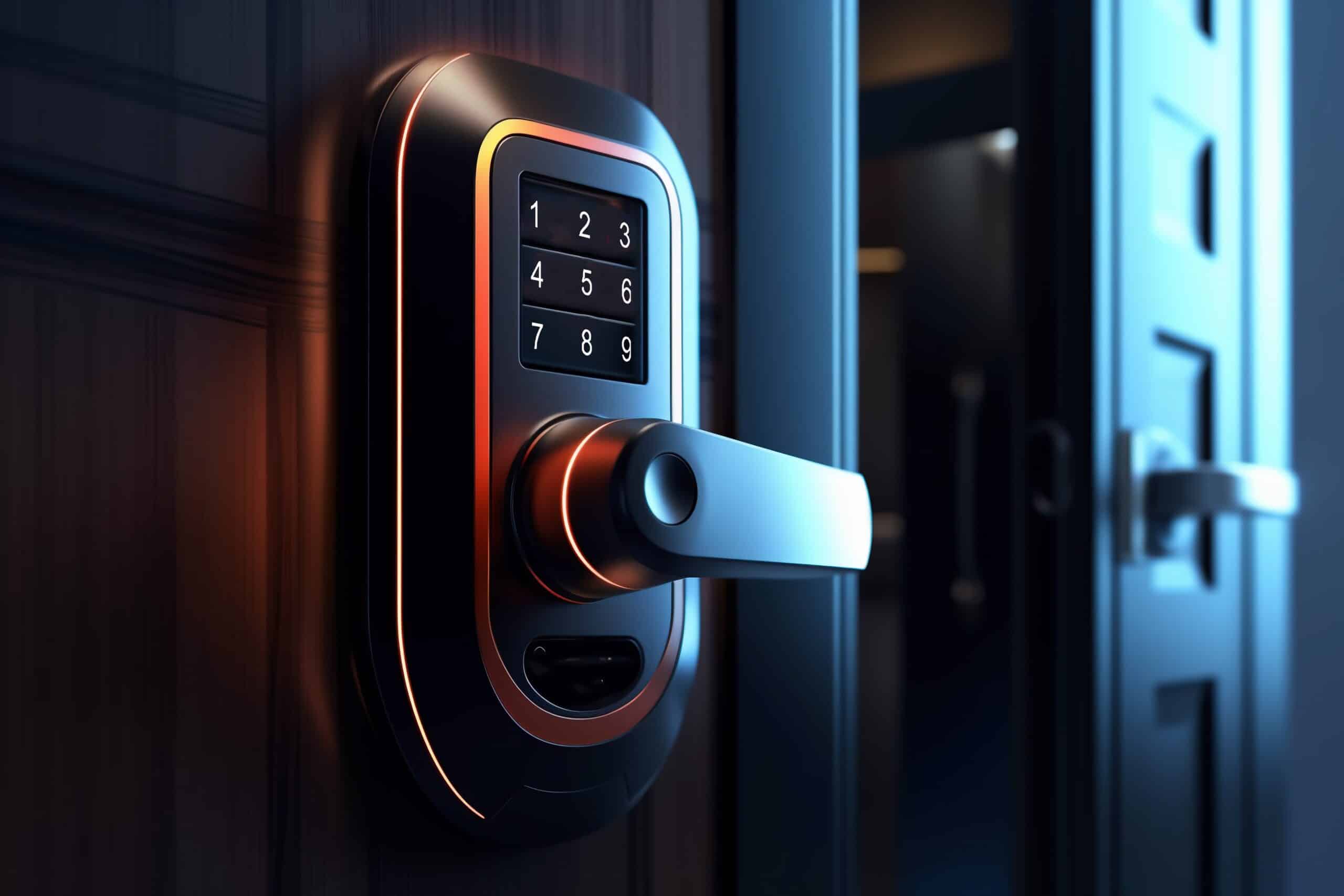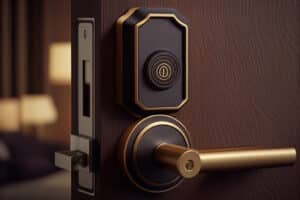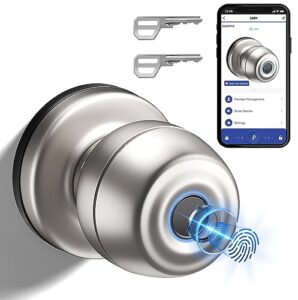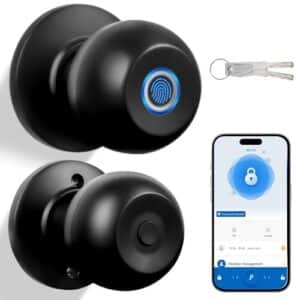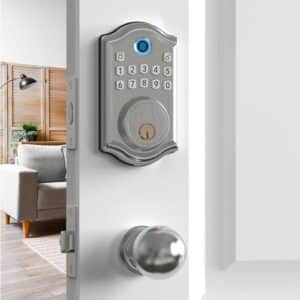How Do Smart Door Locks Work?
Key Takeaways
- Smart door locks connect wirelessly to your home’s network, allowing you to control and monitor the lock remotely through various methods such as keypads, key fobs, mobile apps, and websites.
- Smart door locks offer different mechanisms for locking and unlocking, including keypad entry, mobile apps/key fobs, and fingerprint scanners.
- Smart door locks can integrate with smart home systems like Amazon Alexa, Google Assistant, or Apple HomeKit, and offer security features such as encryption, two-factor authentication, and activity logs.
Smart door locks have revolutionized home security by providing convenient and secure access to your home without the need for a traditional key. These innovative devices utilize advanced technologies to enhance convenience, control, and security. In this article, we will explore how smart door locks work and the features they offer.
Wireless Connectivity
One of the key features of smart door locks is their ability to connect wirelessly to your home’s network. This connectivity allows you to control and monitor your lock remotely through various methods, such as keypads, key fobs, mobile apps, and websites. Smart locks typically communicate with mobile apps and other smart devices using wireless technologies like Wi-Fi, Z-Wave, or Bluetooth.
Locking and Unlocking Mechanisms
Smart door locks offer different mechanisms for locking and unlocking your door. They eliminate the need for physical keys and provide alternative methods that are more convenient and secure.
Keypad Entry
Many smart door locks feature a built-in keypad that allows you to enter a unique code to unlock the door. This method is particularly useful when you don’t have your smartphone or key fob with you. It also allows you to create temporary access codes for visitors, which can be easily managed and revoked.
Mobile Apps and Key Fobs
Smart locks can be controlled through dedicated mobile apps installed on your smartphone or by using key fobs. These methods enable you to lock and unlock your door remotely, monitor access activity, and receive real-time notifications when someone enters or leaves your home. Some smart locks even offer geofencing capabilities, automatically unlocking the door when you approach and locking it when you leave.
Fingerprint Scanners
Another popular feature found in some smart door locks is fingerprint scanning technology. These locks allow you to register authorized fingerprints, providing a secure and convenient way to unlock your door. Fingerprint scanners are highly accurate and can recognize individual fingerprints quickly, providing an added layer of security.
Integration with Smart Home Systems
Smart door locks can integrate seamlessly with other smart home devices and systems, enhancing your overall home automation experience. They can be connected to platforms like Amazon Alexa, Google Assistant, or Apple HomeKit, allowing you to control your lock using voice commands or through automation routines. For example, you can set your lock to automatically lock when you arm your home security system or when you leave your home.
Security Features
When it comes to security, smart door locks offer several features to ensure the safety of your home and loved ones.
Encryption and Two-Factor Authentication
Smart locks utilize encryption protocols to protect the communication between the lock and your mobile device. This ensures that unauthorized individuals cannot intercept or manipulate the data being transmitted. Additionally, some smart locks support two-factor authentication, requiring an additional verification step, such as a fingerprint or a code sent to your smartphone, to unlock the door.
Activity Logs
Many smart door locks keep a log of all access activity, allowing you to monitor who enters and leaves your home and at what times. These activity logs can be accessed through the mobile app or website, providing you with a valuable record of security events.
Are Smart Door Locks Secure?
The security of smart door locks is a question that often arises. While the technology behind smart locks is designed with security in mind, it’s important to choose a reputable brand and follow recommended security practices to ensure the highest level of security.
According to sources like The New York Times, smart door locks are generally considered secure due to features such as encryption, two-factor authentication, and activity logs. However, it’s crucial to select a trusted brand and keep the lock’s firmware up to date to prevent any potential vulnerabilities.
Related Websites:
FAQs:
Q: What are the benefits of using smart door locks?
Smart door locks provide convenience, security, and control. They allow you to lock and unlock your door using a smartphone, keypad, or virtual assistant, and offer features like activity logs, remote access, and temporary access for guests.
Q: How do smart door locks enhance home security?
Smart door locks offer encryption, two-factor authentication, and secure communication protocols to prevent unauthorized access. They also provide activity logs and notifications, allowing you to monitor lock activity and receive alerts in case of suspicious behavior.
Q: Can smart door locks integrate with other smart home devices?
Yes, smart door locks can integrate with existing smart home devices and systems. They are compatible with home automation platforms and can interact with security cameras, alarms, and other smart devices to create a comprehensive smart home security system.
Q: How long do the batteries of smart door locks last?
The battery life of smart door locks varies depending on the usage and model. Battery-powered locks typically last for several months to a year, while wired locks with backup batteries ensure continuous operation even during power outages.
Q: What are the potential vulnerabilities of smart door locks?
Smart door locks can be vulnerable to hacking and unauthorized access if proper security measures are not in place. They also rely on internet connectivity, so disruptions in the network can affect their functionality.

